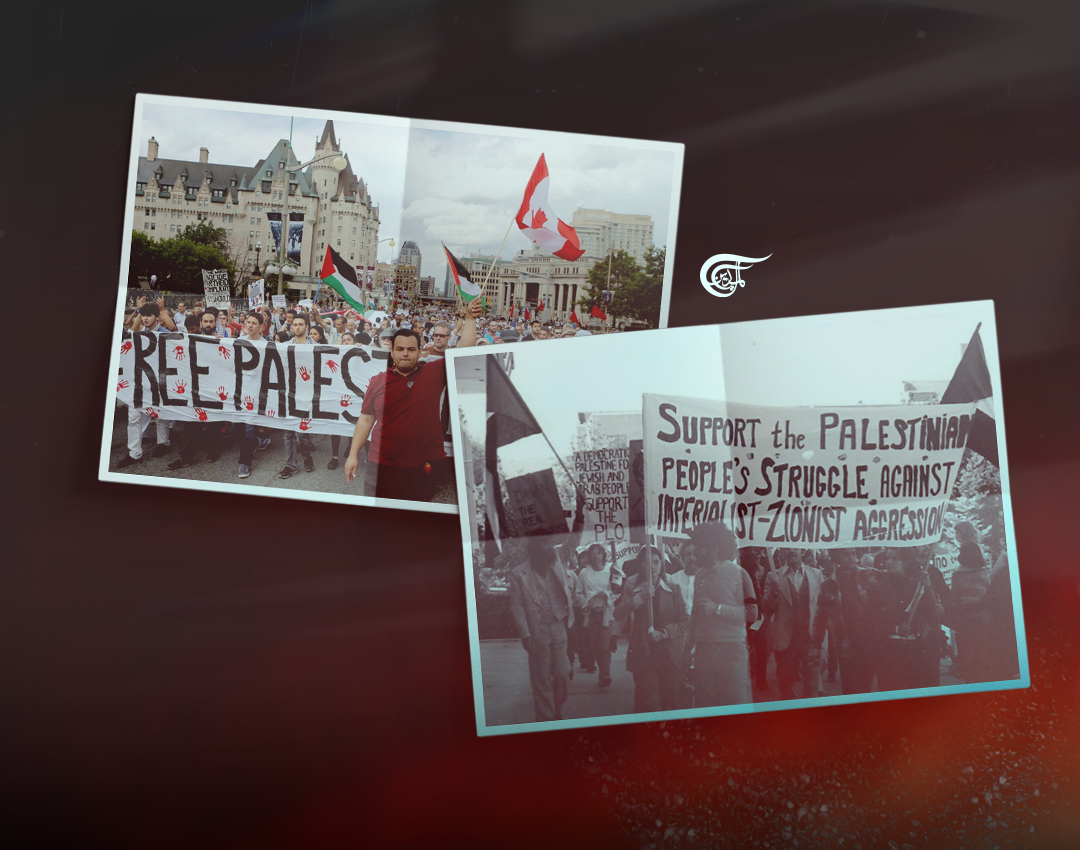Palestine Solidarity Goes Back to its Roots
The pro-"Israel" lobby is frantic about the clear anti-colonial and anti-Zionist basis of recent Palestine solidarity organizing, especially amongst students and youth.
On April 28-30, the Liberation Conference was held in Ottawa, Canada to examine strategies for Palestine solidarity work going forward in North America. The conference was organized by Masar Badil, who has already held several conferences in Europe, Brazil, and Lebanon and is working to harness the new energy amongst diaspora Palestinians.
The conference was attacked by Zionist lobby groups before the first speaker even stepped to the platform, based on a now familiar litany of fraudulent charges of “terrorism”. The Centre for Israel and Jewish Affairs CIJA, along with the National Post newspaper, went on an inflammatory rampage, warning of some “shadowy terror-connected network devoted to Israel’s destruction”.
Samidoun Palestinian Prisoner Solidarity Network was, and is, one of the main targets of these smear campaigns, and their international coordinator Charlotte Kates commented this way:
"Time and again, we see Zionist lobby organizations demanding the silencing, criminalization and persecution of those demanding justice for Palestine and refusing to allow Palestine to be excluded from discussions of social justice. We view the attacks on Samidoun as attacks primarily on the Palestinian prisoners themselves, attempting to isolate and extend their imprisonment through silencing and intimidation.”
The pro-"Israel" lobby is frantic about the clear anti-colonial and anti-Zionist basis of recent Palestine solidarity organizing, especially amongst students and youth. A clarity that often got lost after the signing of the Oslo Accords but is now being revived.
Historically, Palestinian activists in Canada have always challenged the Zionist narrative. In October 1975, the leading pro-"Israel" paper in Vancouver at the time bemoaned the anti-Zionist organizing on the UBC campus, due to the upcoming visit of war criminal Moshe Dayan. That visit involved two local meetings, both of which were met with noisy protests; the banner that was done up for the events showed the clarity of the support movement at that time – “Support the Palestinian People’s Struggle against Imperialist-Zionist Aggression”.
Internationalism and indigenous solidarity were an integral part of the Palestinian support work in the 1970s and 80s. Some of the indigenous allies that joined the anti-Dayan protest were even berated by Zionists and lectured as to how they were ungrateful for the support given to them by pro-"Israel" groups.
The report on Dayan’s speech at UBC by the student newspaper Ubyssey was instructive for those who believe that “liberal” or labor Zionists are somehow more benevolent towards Palestinians. In an answer to a question at the meeting, Dayan reportedly said: “The PLO is just a terrorist organization and we only deal with them by killing them”.
As far back as the 1940s, there was opposition to the Zionist project and support for Palestinian rights amongst Palestinians and Arabs in Canada. In 1947, Muhammad S. Massoud, President of the Canadian Arab Friendship League, told the Montreal Optimist Club that the Arab world “would ‘remember’ Lester B. Pearson and Justice Rand … who … did their utmost to impose upon Arabs the infamous partition scheme.”
Lester Pearson, later to become Prime Minister of Canada, played such a pivotal role in passing the UN Partition Plan that Zionists dubbed him the “Balfour of Canada”.
As we approach Nakba75, the Zionist project is in disarray, and the façade of its invincibility is gone. It is the sacrifices made by the Palestinian resistance over the last decades, and intensifying nowadays, that have brought this project and its international backers to today’s crisis.
Palestine solidarity work globally is recognizing these facts and is moving to center around three solid principles:
1. Oslo and the two-state solution is dead and those still clinging to it are not serving the interests of the Palestinian people.
2. Clarity on opposition to Zionism as a settler-colonial ideology and movement is essential.
3. Support for the Palestinian struggle includes support for the legitimate armed resistance being waged as an integral part of the fight against occupation and settler-colonialism.
As noted by Samidoun’s Charlotte Kates: “It is very important for us all to stand together…and make clear that the Palestinian people's struggle -- for liberation, from the river to the sea -- and the Palestinian people's resistance by all means to achieve that end, is legitimate, justified and indeed, heroic. We will not be silent about the 5,000 Palestinians locked behind occupation bars because of Zionist demands. Instead, we must only get louder and clearer."
The Palestinian resistance movement has entered an era of new strength and optimism, and it is our job as solidarity activists to acknowledge and amplify that reality.

 Marion Kawas
Marion Kawas
 4 Min Read
4 Min Read













